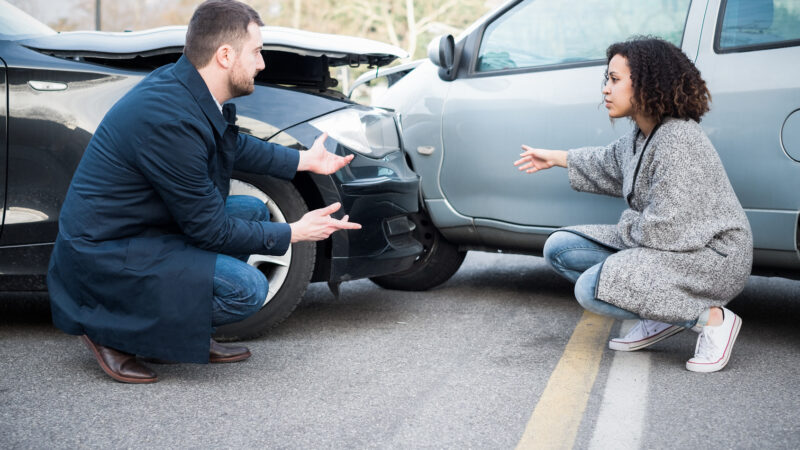When Is a DUI Considered Child Endangerment?

Driving under the influence (DUI) is driving while your blood alcohol concentration is above the legal limit. Like over speeding, it’s a traffic offense and can attract penalties such as fines, license suspension, and even possible jail time.
Driving under the influence while carrying a child is considered an aggravating factor and can increase possible penalties for a DUI. A driver stopped and arrested for driving under the influence with a child in the vehicle may face the charge of DUI child endangerment alongside the already established DUI charge.
Also, there’s a chance that child protective services (CPS) will be involved to investigate and ensure the child’s safety. You may or may not lose custody.
Charges for Driving Under the Influence (DUI)
Generally, the conviction of a DUI is considered a misdemeanor or a felony. If it is your first DUI offense, it is usually a misdemeanor. However, it upgrades into a felony if you had a minor passenger in the car, have previous DUI convictions, or have high blood alcohol concentration.
A first offense DUI, usually a misdemeanor, is punishable by a jail term of up to six months or a year in most states. Other states may even have a shorter maximum jail time for the same. Two or more DUIs have a longer maximum possible jail time. However, circumstances, including the level of blood alcohol concentration, may influence jail time.
It is highly likely for a DUI conviction to result in a fine, but the amount varies by state. The same factors that influence jail time also influence the amount a driver can expect to pay. Another legal consequence facing drivers charged with DUI is license suspension for a period stipulated by the court order or state motor vehicles department.
Also, unlawful refusal to take a breath, urine, or blood test can also lead to suspension, which may be longer than if they cooperated. Other consequences of a DUI conviction include cancellation of the insurance policy or a drastic increase in the rates.
How Having a Minor Passenger Affects DUI Charges
A DUI charge is bad enough, but if you had a child on board, this increases the penalties since the charges turn into DUI child endangerment. Many states list drunk driving when having a child in the vehicle as an aggravating factor that increases the potential charges for a DUI.
But even in the states that do not specifically consider minor passengers as an aggravating factor, having a child in the car during a DUI offense can impact the penalties the driver faces. Prosecutors and judges handling DUI cases and sentences typically consider that aggravating factor. The legal consequences, however, differ from state to state.
Generally, resolving DUI cases involves plea bargaining whereby the defendant accepts to plead guilty or no contest to the charge of DUI in exchange for the prosecution to reduce charges to a less serious offense.
However, prosecutors may not give good plea deals to defendants whose cases involve aggravating factors such as having a child on board the car. Defendants in such cases who wish to enter a plea instead of going to a trial may end up facing harsher penalties.
DUI Child Endangerment Charges
Whether you are a caregiver, guardian, or parent, the law obligates you to take all necessary measures to ensure a child’s safety. You may face prosecution for child endangerment if you intentionally or negligently harm or put a child at risk.
Since DUI charges are separate from child endangerment charges, a driver charged with the two offenses may receive punishment for two separate criminal charges. However, DUI child endangerment can be a misdemeanor or felony, just like a DUI charge. The jail time for a misdemeanor is usually up to a year and a maximum of $1,000 or so in fines, while a felony conviction leads to higher fines and a longer jail time.
Moreover, child protective services may launch investigations that could see a child removed from the custody of a parent who drinks habitually. It is not mandatory that the parent will lose custody if arrested for a DUI with kids in the car, but the child protection service may want to investigate and monitor the situation if evidence shows the children are at risk.
Key Takeaway
All states prohibit driving while under the influence of alcohol, drugs, or any combination of the two. Although the laws and penalties differ by state, you can expect a punishment such as a fine, jail term, or suspension of your driving license. If a minor was in the vehicle at the time of arrest for DUI, you are subject to face DUI and DUI child endangerment charges; thus, the penalties may be higher.
If you are facing DUI charges with a child in the car, you don’t have to face serious legal penalties that come with DUI child endangerment. You can seek help from an experienced criminal defense lawyer who can help navigate the criminal justice system, identify any available defenses and offer representation in court. Also, the attorney can push for alternative sentencing options on your behalf and also bargain for a fairer deal in a plea agreement.





